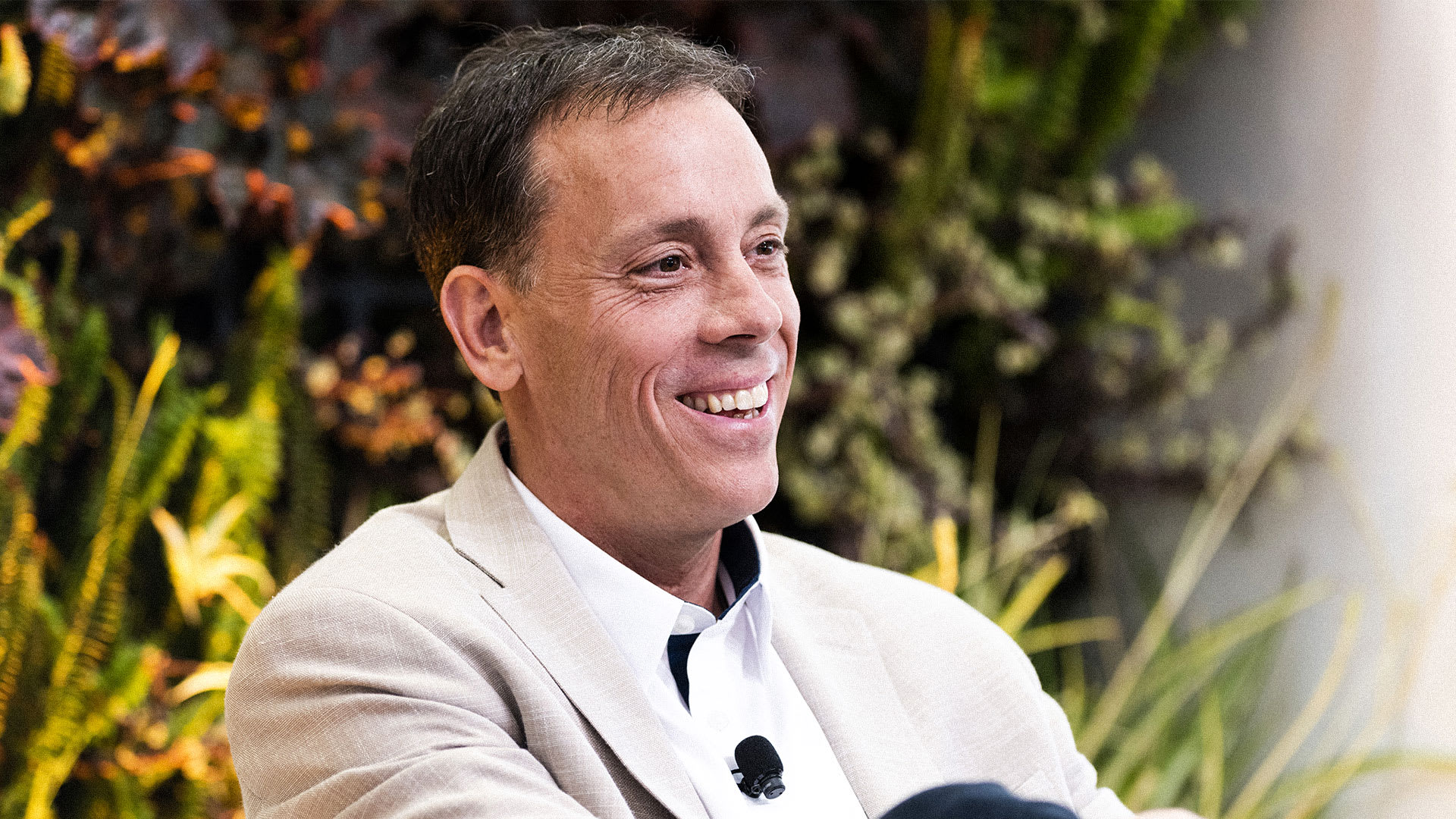Finishing someone else’s sentences is traditionally cited as an indicator of intimacy. It’s what friends, partners, or colleagues do when they’ve spent enough time together to act as each other’s predictive text generators. In truth, though, this behavior might not actually be a sign of intimacy, but rather impatience. People often finish each other’s sentences frankly because they know what the damn point is already and can’t wait even a second longer to get there.
Jim VandeHei, Axios cofounder and CEO, is a big believer in getting right to the point. More importantly, the popularity and rare profitability of Axios—the bold font and bullet-riddled news empire he launched in 2017—has proven that a lot of other people feel the same way. VandeHei previously codified Axios’s snappy house style with the 2022 book, Smart Brevity, written with cofounders Mike Allen and Roy Schwartz. Now with his new book, Just the Good Stuff, VandeHei has outlined how to apply smart brevity to every aspect of work—and everywhere else as well.
“I’ve become obsessed with the concept of simplicity,” VandeHei says, “mainly in the office, but at every level of my life.”
Although parts of Just the Good Stuff function as memoirs from a life spent moving in powerful D.C. circles, the bulk of the book consists of bite-size advice on working smart. It’s all about eliminating the bad and unnecessary while emphasizing the good and indispensable. And if that sounds like diet advice, it’s no coincidence that a late chapter on fitness reads like a fresh application of familiar principles.
Simplicity is the North Star VandeHei steers by throughout the book, but achieving it is not as, well, simple as it may seem.
“It’s harder to be simple and smart than it is to be complex and foggy,” the author says. “People are just long-winded and process-y by nature. The only way you can really have simplicity in your writing or work culture or operations is to have a sharp idea of what we’re doing, why we’re doing it, and when we’re doing it by.”
In the book, VandeHei urges readers to snap out of autopilot, examine every routine, and search for streamlining solutions hidden in plain sight.
Do work inventories
Like a lot of startups, Axios grew fast after its 2017 launch. Somewhere in the snowball-roll from a staff of 30 to a staff of 300, the company picked up a lot of institutional habits and had become less agile and efficient. VandeHei and his cofounders began conducting regular work inventories. They looked for meetings, products, and processes that could be pared down or jettisoned entirely.
“I’m just constantly trying to figure out how do you get people to think quicker, do more, and ultimately do more in less time,” VandeHei says. “I really think we can all do 50% more with 50% less, if you’re constantly doing that inventory of your work and your schedule.”
Do self-inventories
Of course, introspection isn’t just something the CEO recommends at an organizational level; he’s also a major proponent of cold, hard gazes in the mirror. Paying close attention to one’s own approach to work, and how it fares over time, is an unbeatable way to zero in on core strengths, weaknesses, and passions—and determine where you can add the most value.
“It’s okay to not be good at something,” VandeHei says. “Some people aren’t that creative. And you don’t need to be creative, if you’re a hell of a good doer.”
In his own self-assessment, for instance, the longtime reporter gradually realized that what he is best at is writing, strategy, and communicating, and that he is not very good at mastering the company tech stack. Guess which one of those tasks he has since delegated.
Lead from below
After a period of careful examination, it might emerge that certain routine meetings, benchmarks, or tire-kicks add nothing worth keeping to your workflow. Some people likely know this intuitively, without having done any reflection whatsoever. The problem, though, as VandeHei sees it, is that a lot of people never do anything with this information. They’re so afraid that requesting to bow out will come across to their manager as laziness rather than a distaste for tedious inefficiency, they just continue with unnecessary processes indefinitely.
According to VandeHei, when suggesting to remove items from your plate, the difference in how the request goes over may depend on the way you plead your case.
“Everyone’s self-interested,” he says. “The leader wants to have a better product and wants to have better results. So that’s how you can present it: ‘If I had 20% more time to do the things where I’m actually making the biggest difference for my team and for the company, imagine the results that that’s gonna have for you.’”
Recognize your brand’s excellence by applying to this year’s Brands That Matter Awards before the early-rate deadline, May 3.







